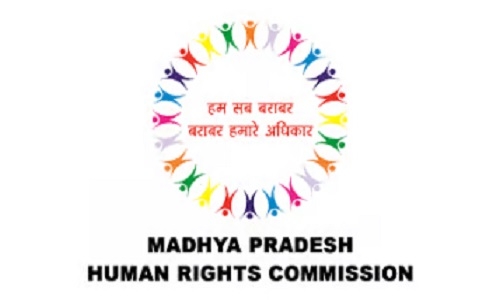MPHRC.. Steps in after jr doctors at GMC demand reform
| Date :17-Apr-2024 |

By Kriti Shah
The Madhya Pradesh Human Rights Commission (MPHRC) has taken cognizance of a disturbing plea by five junior doctors from Gandhi Medical College (GMC), Bhopal, who have requested for mercy killing alleging excessive workload, harassment by faculty members, and a toxic work environment. The junior doctors claim that they are often made to work continuously for 24 to 36 hours without respite, even on Government holidays. They also alleged mistreatment by senior consultants and faculty members, who reportedly use derogatory language against them, including terms like ‘lazy’ and ‘inefficient’. Furthermore, they claim to have faced threats of failing their third-year exams and being fired if they speak up against these conditions. Taking immediate action on the matter, MPHRC has initiated an investigation. The commission has reached out to the Principal Secretary of the Government of Madhya Pradesh Medical Education Department, the Director of Medical Education Department in Bhopal, and the Dean of Gandhi Medical College to gather information about the working conditions imposed on junior doctors. They have also sought guidance from the National Medical Commission regarding the working conditions for junior doctors in medical colleges across Madhya Pradesh. Reportedly, the National Medical Commission (NMC) has previously issued guidelines addressing the working hours and conditions for medical professionals across various government and private medical colleges.
However, the recent incident at GMC raises questions about the implementation of these guidelines and the overall well-being of medical staff. The disturbing issue came to light when an anonymous letter surfaced at GMC on Monday. The letter painted a bleak picture of the college’s environment, describing it as toxic. It even mentioned the possibility of a group suicide by doctors on May 31. Dr Kuldeep Gupta, a spokesperson for the junior doctors, revealed that they face verbal abuse and threats from senior consultants. They are often told that they will not pass their third year or may even fail if they speak up against the harsh working conditions. Even on government holidays, these junior doctors are summoned to work, leading to extreme mental and physical exhaustion. In a conversation with ‘The Hitavada’ Dr Ashish Tiwari, a JUDA (Junior Doctors Association) member, also revealed the same, highlighting the toxic work culture prevailing in GMC.
In response to the situation, the Federation of All India Medical Association (FAIMA) has formed a five-member committee to investigate the claims made in the letter. The letter also expressed disappointment that despite the educational background of some doctors in the family of the Chief Minister, the distress faced by the junior doctors is not being understood or addressed. According to the reports, the distressful letter has been signed under the name of the President of FAIMA in New Delhi. Notably, it did not mention the names of any resident doctors, casting doubts on its credibility. The letter also mentions that “We thought that after the suicides of Dr Akansha Maheshwari and Dr Bala Saraswati, some improvements would be made, but nothing has changed; it’s all just for show.” This adds a significant dimension to the concerns raised by the junior doctors, highlighting the lack of action taken even after tragic incidents in the past. Additionally, the letter concludes with a plea to the Chief Minister, urging him to understand their plight and ensure better working conditions.
The doctors emphasise their desire to learn and provide quality medical services but are being pushed to the brink of contemplating drastic measures like mass suicide due to the hostile environment at GMC. The letter has also mentioned the address of the “5 Residence of Toxicity Hub, Gandhi Medical College, Hamidia Hospital”, adding another layer of concern to the situation. With the credibility of the letter being questioned due to its anonymous nature, the investigation by MPHRC and other concerned authorities becomes crucial to ascertain the facts and address the grievances of the junior doctors effectively. According to the various sources, this isn’t the first time such grievances have been raised. Last year, Gandhi Medical College faced a similar tragic incident when a pregnant junior doctor took her own life by injecting herself with anaesthesia and consuming sedatives. This devastating event led to a doctors’ strike, demanding action against the toxic work culture. In her final note, the victim named Dr. Aruna Kumar, the then head of the Obstetrics and Gynaecology department, highlighting the hostile work environment. Other than this there have been several other previous complaints of resident doctors taking their own lives due to similar reasons. The MPHRC has requested a detailed report on these incidents and the actions taken in response.